You’re wondering if Dubai is worth it for a modelling career-or if it’s all hype. Short answer: yes, it can be great, but only if you play it smart. The city is booming with commercial shoots, fashion weeks, and brand launches, but it’s also competitive, paperwork-heavy, and not cheap. I live in Dubai and work in this world; I’ve seen people thrive and I’ve seen people burn out. If you want real odds and a clear plan, keep reading.
Key takeaways and direct answer
Is Dubai good for modelling? Yes-especially for commercial/lifestyle, beauty, fashion e‑commerce, hospitality, luxury, and events. It’s less consistent for pure high-fashion editorial than Paris or Milan, but the money for commercial gigs can be stronger and faster here if you’re prepared.
- Market fit: Dubai favors diverse, polished, friendly faces-commercial, beauty, modest fashion, and luxury lifestyle perform well. Runway is here but not the main volume.
- Money: Day rates for mid-level work often sit in the AED 1,500-5,000 range, with premium campaigns paying higher. Usage fees and buyouts are normal. VAT at 5% applies to invoices.
- Paperwork: You need the right work setup-agency sponsorship, a company visa, or a Free Zone freelance permit. On a tourist visa? You can’t legally work.
- Pace: Peak seasons are Oct-Dec and Feb-Apr. Castings are last-minute, WhatsApp rules the day, and call times can be early.
- Safety: Dubai is safe, but the industry still has risks. Work only with licensed entities. Get written bookings and usage terms.
What you’ll get here today: clear steps to enter the market, costs and rates that are realistic for 2025, how visas work, how to spot real agencies, how to protect your image rights, and what castings feel like on the ground in d3 and Al Quoz. One promise-I’ll keep it practical.
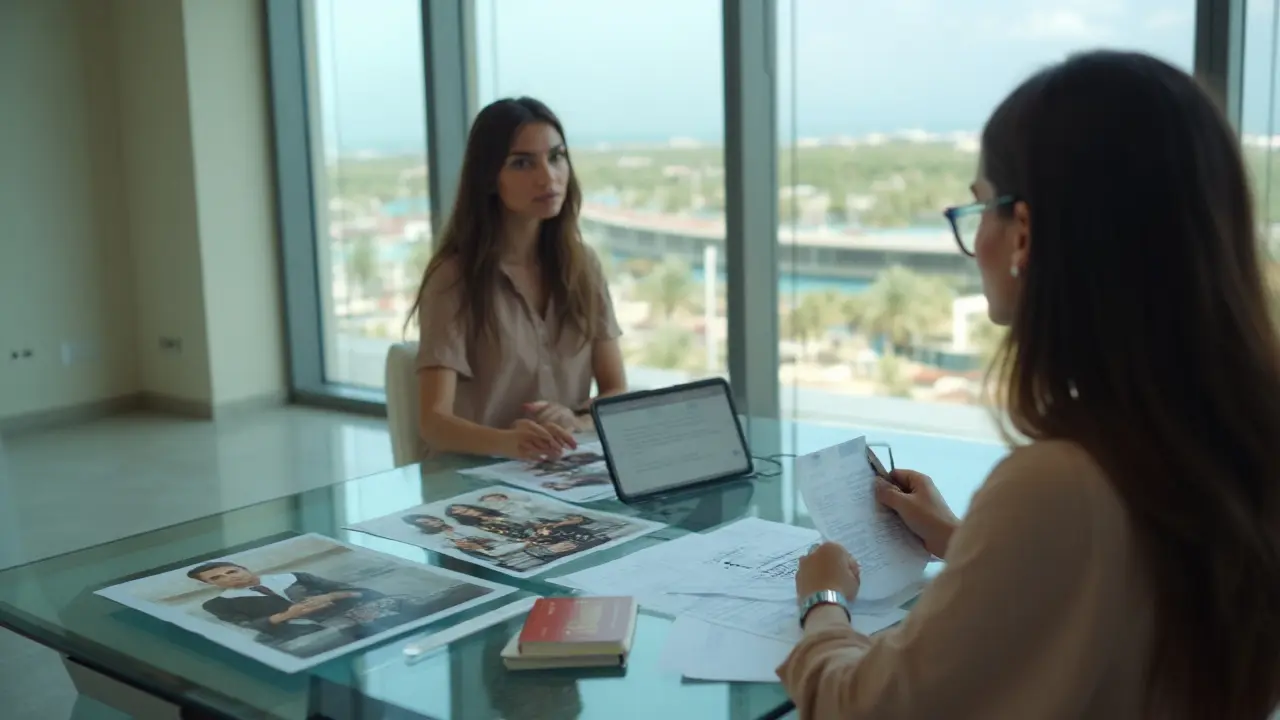
How to build a modelling career in Dubai: the 2025 playbook
Before tactics, a quick vibe check. Dubai’s modelling scene is driven by tourism, luxury retail, beauty, hospitality, social content, and year-round event culture. There’s Arab Fashion Week at d3, fashion/retail launches every week, and constant e‑commerce shoots. If your look and pace fit the city, you can get rolling fast.
Who tends to win here?
- Commercial/lifestyle models (all ages, all backgrounds) with strong expressions and clean digitals.
- Beauty and hair models, fitness, modest fashion, family talent (parents + kids), and hospitality/event models.
- Runway models meeting height standards (women ~175 cm+, men ~185 cm+)-but expect fewer shows vs. Europe.
Where and when the action happens:
- Locations: Dubai Design District (d3), Al Quoz/Alserkal for studios, Al Fahidi and Jumeirah beaches for lifestyle, Al Qudra desert for campaigns, Downtown/Business Bay/Marina hotels.
- Seasons: Busy Oct-Dec and Feb-Apr. January and September ramp up. July-August slows down, though e‑commerce still runs.
Step-by-step: get market-ready in 30 days
- Digitals that book jobs: shoot natural light, clean face, fitted outfit, hair off face. Front, side, full-length. One smile, one neutral. No filters.
- Portfolio that fits Dubai: 10-20 of your strongest shots-commercial, beauty, and simple fashion. Add one swim if you actually want those jobs; keep it tasteful.
- Comp card: 1 cover image + 3-4 varied shots + stats + contact. PDFs are fine.
- Polish your profiles: Instagram should match your book. Agencies and producers check it first. Keep highlights for BTS, runway, beauty, lifestyle.
- Map the agencies: short-list licensed agencies and talent houses that regularly book campaigns and e‑comm. Look for real brand credits, not just moodboards.
- Apply smart: email your digitals and comp with a clear subject: “Female Model - 177 cm - Commercial/Beauty - Available in Dubai.” Follow up once after 7-10 days.
- Sort your work status: if you get traction, decide: agency-sponsor, company employee, or freelance permit. Don’t wait until your first booking to scramble.
Agencies and how to read them
- What a solid Dubai agency looks like: active Instagram with weekly booking tags, local brand credits, a proper trade license, a physical office or clear business registration, standard contracts outlining commission and usage.
- Names you’ll hear a lot: long-standing players like Bareface, MMG, and Diva Dubai. There are also niche boutique rosters for fashion, fitness, or kids. Always verify licensing before you sign anything.
- Commission norms: 20-30% from the model is common; some agencies also charge the client. Ask before you sign. Request payment timelines (30-60-90 days is typical here).
Freelance vs agency-signed
- Agency-signed: fewer admin headaches, steady casting flow, help with rates and usage. Downside: you might be exclusive and wait for payment via the agency.
- Freelance: full control over clients and pricing, faster payouts when direct. Downside: permits, invoicing, chasing payments, and screening clients is on you.
Visas, permits, and working legally in 2025 (don’t wing this)
- Tourist visa: you cannot work.
- Employed by an agency or production house: you’ll use their company visa and labor card; they handle MoHRE work authorization.
- Freelance permit: common routes include Free Zones tied to media/creative work (e.g., Dubai Media City/d3 programs). You’ll hold a permit plus a residency visa, and you can invoice clients.
- On a spouse/parent visa: you usually need a work permit or No-Objection Certificate from your sponsor plus the right business license if you freelance.
Costs to expect (ballpark, 2025):
- Freelance permit: often ~AED 7,500-10,000/year depending on the Free Zone and package.
- Residency visa/medical/ID: plan AED 4,000-6,000 extra in year one.
- Insurance: health cover is mandatory; pick a plan that includes set safety.
Taxes and invoicing basics (UAE context)
- VAT: 5% VAT applies if you are VAT-registered and meet the threshold. Many models under small-entity thresholds won’t register; get advice before deciding.
- Corporate tax: UAE introduced a 9% corporate tax on business profits for companies from 2023; treatment for Free Zone and small business regimes varies. Freelancers should seek licensed tax advice based on their setup.
- Income tax: there is no personal income tax on employment wages in the UAE.
Rates and usage: know your value
- Half-day e‑commerce/lifestyle: AED 1,200-2,500 for newer talent; AED 2,500-4,000 for experienced; premium rates for high-volume clients.
- Full-day commercial: AED 2,500-5,000+ depending on profile and client brand tier.
- Campaigns/beauty: AED 5,000-20,000 day rate plus usage/buyout on top. Buyouts can be 50-200% depending on duration (3-12 months), territory (UAE/GCC/Global), and media (digital/print/OOH/TV).
- Runway/events: AED 1,500-5,000 depending on show profile, rehearsal, and fittings.
Always separate day rate and usage in writing. Typical usage line items: duration, territory, media, exclusivity, and a renewal clause. Ask for kill fees and overtime rules (post-10 hours).
Budgets and break-even thinking
- Living costs: shared room AED 3,500-6,000/month; studios from AED 6,000-10,000+ depending on area. Add transport, food, and permits. Yes, it adds up.
- Run the numbers: if your average net per booking is AED 2,500 and you book 4-6 times/month, you’re in a workable zone. Under 2 gigs/month long-term is tough unless you have another income stream.
How castings and shoot days actually feel
- Castings: short notice, WhatsApp pins to d3 or Al Quoz studios, 2-5 minutes on camera, a slate, a couple of expressions, sometimes a walk. You might be in and out in 15 minutes-or waiting an hour.
- Callbacks: often same day or next day. Holds are common; avoid double-booking and confirm releases early.
- Shoots: early call times, chilled studios, respectful crews. Hydrate-it gets hot between locations.
Safety and ethics (non-negotiable)
- Book through licensed agencies or registered production companies (check their commercial license). The Dubai Economy & Tourism register is a good reference.
- Never go to private apartments for “test shoots.” Meet in studios/co-working, bring a chaperone if you’re unsure.
- Always sign a booking confirmation: date, rate, hours, usage, wardrobe, location, and payment terms.
- If you also do paid influencer work, the UAE Media Regulatory Office requires an e‑media license. Separate this from modelling unless your contract blends both.
- Public/commercial shoots in Dubai may require a permit via the Dubai Film and TV Commission; hotels/malls also need approvals. Producers usually handle this-ask.
Credibility checks worth doing
- Ask for a trade license copy before a first-time booking.
- Google their company name + “scam” + “Dubai”.
- Check who else is on the roster and what campaigns they’ve really done.
My quick answer to the big question: If your goal is steady commercial work, a clean portfolio, and you’re organized with visas and contracts, Dubai can be a fast, friendly market. If you want only avant-garde editorial and runway every week, base in Paris/Milan and treat Dubai as a commercial stop.
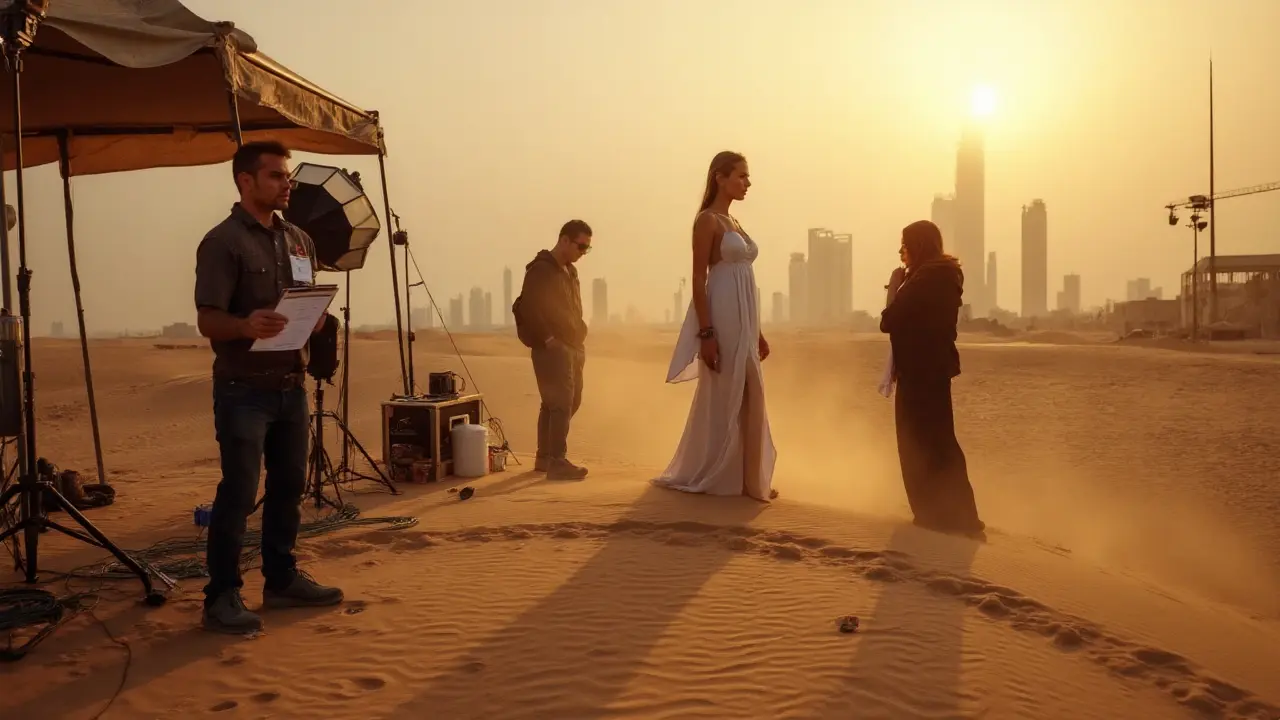
Tools, comparisons, checklists, and FAQs
Here’s a bundle you can save: a comparison table, realistic rates, ready-to-use checklists, a mini‑FAQ, and next steps for different situations.
Comparison: modelling vs acting in Dubai (many models do both)
| Factor | Modelling in Dubai | Acting in Dubai |
|---|---|---|
| Main Work Types | E‑commerce, beauty, lifestyle, fashion shows, hospitality, campaigns | TV commercials, corporate videos, streaming, brand films, events hosting |
| Skills Focus | Posing, movement, expressions, runway walk | Line delivery, improv, continuity, multiple takes |
| Bookings Pace | Frequent, shorter shoot cycles | Less frequent but longer days; higher prep/callback steps |
| Rates (typical) | Half-day AED 1,200-2,500; Full-day AED 2,500-5,000+ | Commercial day AED 2,500-8,000+ depending on speaking role and usage |
| Usage/Buyouts | Common; specify duration/territory/media | Very common; TV/OTT/OOH can be higher |
| Entry Path | Digitals + comp to agencies; test shoots; e‑comm first | Acting reels; casting directors; workshops; self-tapes |
| Regulatory Notes | Work permit/visa; DFTC permits for commercial shoots | Same; plus release forms and often stricter usage clauses |
Sample Dubai 2025 rate guide (use as a starting point, not a rule)
| Job Type | Half-Day (up to 5h) | Full-Day (8-10h) | Typical Usage Add‑On |
|---|---|---|---|
| E‑commerce (lookbook/catalog) | AED 1,200-2,500 | AED 2,500-4,000 | Usually included for online catalog; campaigns extra |
| Lifestyle/Hotel/Resort | AED 1,800-3,000 | AED 3,000-5,000 | Digital/social UAE 10-50% for 3-6 months |
| Beauty/Hair | AED 2,500-4,000 | AED 4,000-8,000 | Print/OOH 50-150%; exclusivity may apply |
| Runway/Shows | - | AED 1,500-5,000 | Event-only; no ongoing usage unless filmed |
| Campaign (fashion/beauty/luxury) | - | AED 5,000-20,000 | Buyout 50-200% depending on duration/territory/media |
Casting day checklist (save this)
- Digitals on your phone + comp card PDF.
- Simple fitted outfit, clean shoes, minimal makeup; bring heels if you’re runway-capable.
- Hair ties, blotting papers, water, small snack, portable charger.
- Know your stats: height, bust/waist/hips, shoe, dress/suit size.
- Map the location; parking at Al Quoz fills up-arrive 10 minutes early.
Contract and usage checklist
- Separate day rate and usage; state duration, territory, media, exclusivity.
- Payment term (30/60/90 days), late fee policy, and invoice requirements (VAT if registered).
- Overtime after 10 hours, meal breaks, travel/transport coverage.
- Kill fee if canceled within 24-48 hours.
- Approval rights for hair cuts/color changes; wig options if needed.
Agency red flags
- They ask for money to join the roster (beyond optional test shoots).
- No trade license, no real office, vague company name.
- All promises, no actual client credits.
- They won’t put terms in writing or dodge usage questions.
Where to network without being awkward
- Dubai Design District (d3) events and brand pop-ups-go early; talk to stylists and producers, not just models.
- Alserkal Avenue exhibit nights-plenty of photographers and creatives.
- Workshops and testing days in Al Quoz studios; split the cost with a stylist and MUA to build a real team.
Mini‑FAQ
- Is there an age limit? No. There’s real demand for kids, 30-50+ lifestyle, and seniors. The market is broad.
- Do I need perfect measurements? Not for commercial. For runway, yes, height and proportions matter more.
- Can I model while on a spouse visa? Usually yes, with a work permit or NOC and the correct business license if freelancing. Confirm with MoHRE/your Free Zone.
- Do I need an influencer license? Only if you take paid content creator/influencer jobs. It’s separate from standard modelling bookings.
- How fast do clients pay? 30-90 days is common. Some direct clients pay on delivery-negotiate deposits for bigger buys.
- Is Arabic required? No. English is fine. Arabic is a plus for some campaigns.
Next steps (pick your path)
- If you’re in Dubai now with a book: shortlist 5 agencies, send digitals today, and line up 2 test shoots in Al Quoz within two weeks.
- If you’re abroad planning a move: build a Dubai-friendly portfolio first (commercial/beauty), pre-apply to agencies, and budget 3 months of living costs plus permit/visa fees.
- If you’re switching from another market: keep your best editorial, but add smiley lifestyle e‑comm-Dubai clients want to see that you can move product.
Troubleshooting scenarios
- No replies from agencies: your digitals may be off. Reshoot in natural light, add a smiling close-up, trim your PDF to your 12 best shots.
- Lowball offers: ask if usage is included; separate usage and propose a tiered buyout. Offer a half-day test rate for volume clients to seed repeat work.
- Last-minute cancellations: confirm hold fees and kill fees in your terms; ask for 50% deposit for weekend or travel jobs.
- Visa confusion: book a 30-minute consult with a Free Zone adviser; the wrong setup costs more than the consult.
A note on credibility: for rules and permits, check the UAE Ministry of Human Resources & Emiratisation (MoHRE) for work authorization, the Dubai Economy & Tourism registry for company licensing, the Dubai Film & TV Commission for shoot permits, and the Media Regulatory Office for influencer licensing. These are the authorities producers lean on.
Final thought: If you want a realistic, profitable plan for Dubai modeling, think commercial-first, protect your usage rights, get your work status sorted, and show up consistently. The city moves fast-and it rewards people who are ready at call time.

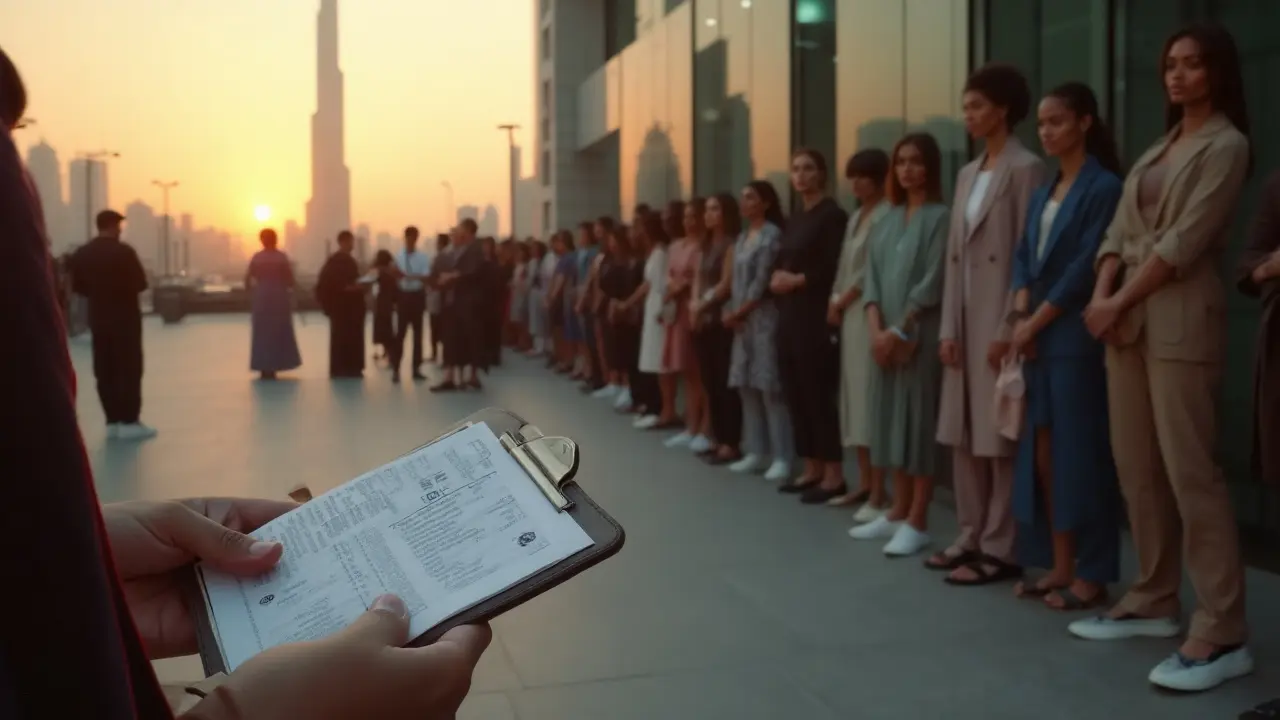
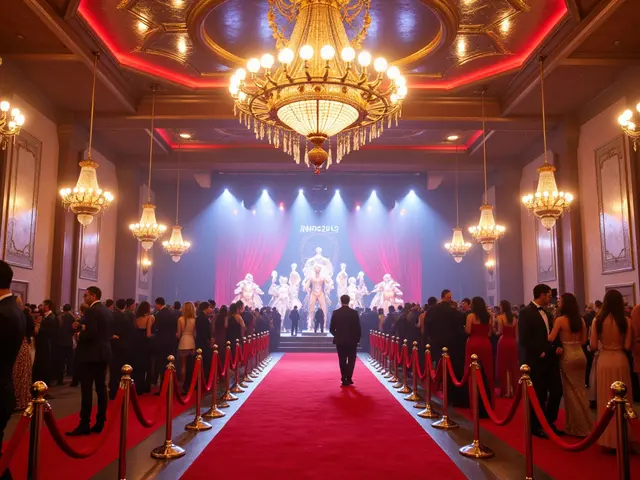
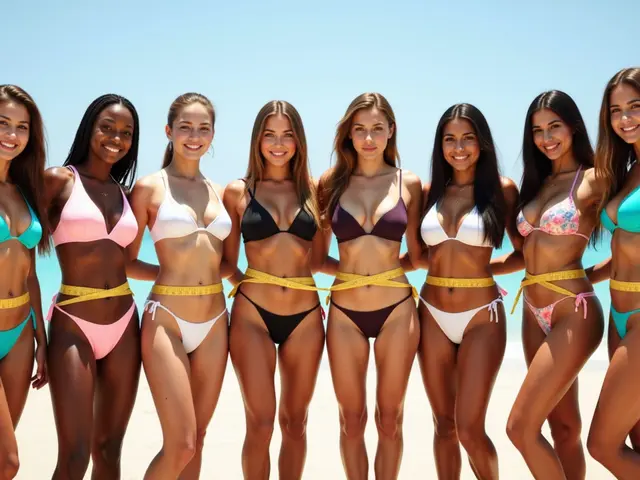
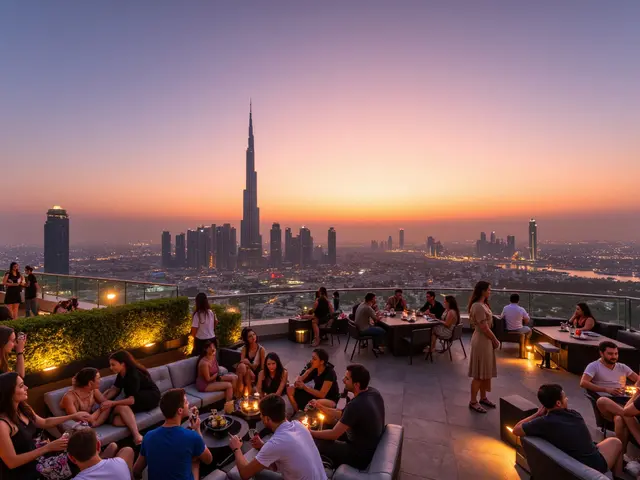
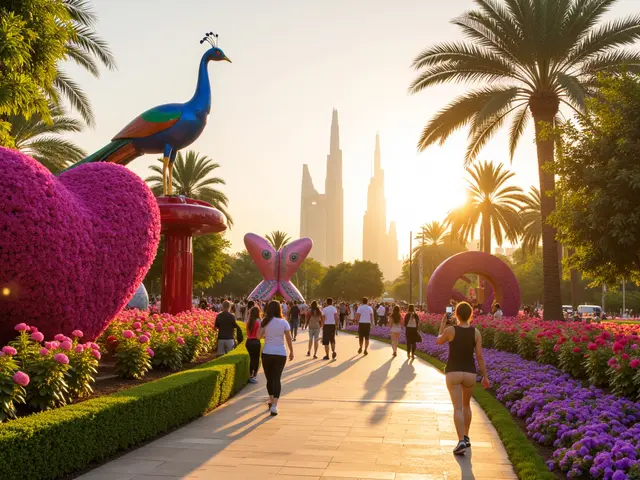
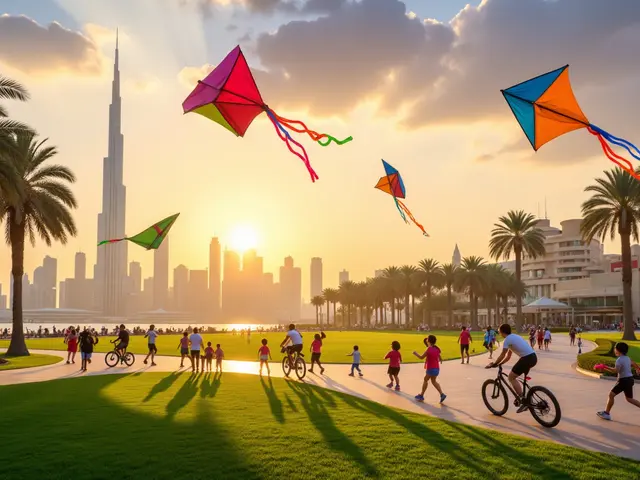
September 11, 2025 AT 14:07
Dubai's modelling market operates under specific legal constraints that many newcomers overlook. The guide mentions visas but it does not emphasize the urgency of securing a sponsor before any booking is confirmed. Without an agency contract you risk breaching labor regulations and facing fines. The cost breakdown is realistic yet it omits hidden expenses such as studio rental fees and professional photography costs which can total several thousand dirhams per shoot. Models also need to budget for health insurance which is mandatory for freelancers. The recommendation to focus on commercial work is sound but the guide fails to address the competitive pressure from expatriate talent flooding the market. Agency commissions of 20 to 30 percent are standard but the guide does not explain that some agencies also levy hidden administrative fees for contract processing. Seasonal peaks are correctly identified however the advice to arrive only during those periods ignores the benefit of building a network during the slower months. Moreover, the guide glosses over the importance of a robust social media presence which is often the first screening tool for casting directors. While the day rates are accurately listed, the guide does not clarify that usage fees can double the initial payment if the campaign runs beyond three months. The checklist for contracts is useful but it should stress that models must retain a copy of the signed agreement for legal protection. Finally the safety advice is solid yet it could be expanded to include recommendations for hiring a personal assistant or a trusted friend for first‑time studio visits. In summary the guide provides a solid foundation but it requires additional detail on hidden costs networking strategies and legal safeguards to be truly comprehensive.